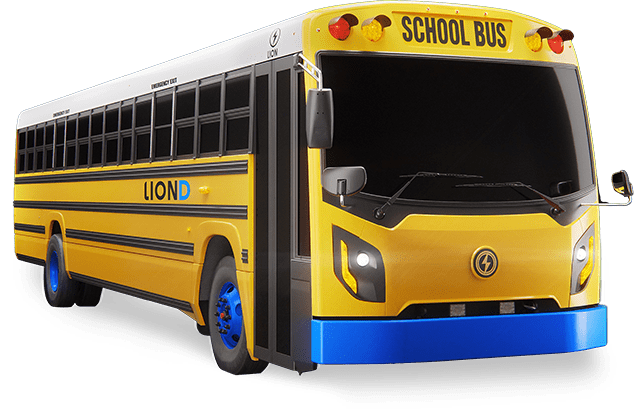Infrastructure Act Funding is Coming, School Districts Need to Prepare for Electric School Bus Transition
CALSTART Releases New Study on Successful Electric School Bus (ESB) Pilots; Calls on School Districts to Start Laying Groundwork for Fleet Transition
With $2.5 billion in federal funding slated to support the transition to electric school buses, the moment has come for U.S. school districts nationwide to convert from unhealthy diesel buses to clean electric school buses, according to the authors of a new CALSTART study about the rapidly transforming ESB market.
“Electric school buses are ready to roll, funding is available, and now school districts have some homework to do,” said Jared Schnader, director of bus programs at CALSTART. “Our research found that school districts will save money, save time, and enjoy a smoother transition to the new technology if they plan ahead, reach out to ESB manufacturers, work with their local utilities on charging infrastructure, and give their bus drivers and mechanics time to adapt.”
The bell rang for school districts to set up formal planning processes for acquiring ESBs when President Biden signed the bipartisan $1.2 trillion Infrastructure Investment and Jobs Act that allocates $5 billion in new federal funding over five years for electric and low-emission school buses and at least half of this funding will be allocated specifically for zero-emission buses. These funds will offset the initial ESB purchase price, which can be two or three times that of a new diesel bus.
“Converting the nation’s school bus fleet will require teamwork,” Schnader said. “Electric utilities, bus builders, local and state agencies, and the federal government all want to help school districts get ready. Everyone knows school budgets are tight. Our message to school superintendents is, ‘Let us help you.'”
The new federal funding will be in addition to an existing array of federal, state, utility, and other funding programs available to school districts, which CALSTART summarized in its new study. CALSTART and other advanced transportation organizations are eager to provide schools with technical assistance. Alongside the new study, CALSTART created a 7-Step Checklist for Electric School Bus Transition to help school districts start planning.
Concerns about the health and air pollution impacts of diesel school bus emissions are driving the transition to ESBs. More than 25 million children in the U.S. ride school buses each day. Diesel exhaust is a known carcinogen that has a negative effect on human health, affecting students, bus drivers, bus mechanics, drivers in other vehicles, and those who reside near bus transportation corridors. Each of the nearly half a million diesel school buses currently in use will emit 90 tons of carbon dioxide into the atmosphere over its 12-year life span, equivalent to the greenhouse gas emissions of 23 passenger vehicles over the same period.
With their developing respiratory systems, children are, by far, the most vulnerable to the effects of diesel emissions. A Berkeley School of Public Health/NRDC study found that a child seated inside a diesel-powered school bus faces toxic air pollutant exposures up to four times higher than someone riding in a car in front of a school bus. Numerous studies show that these emissions lead to impaired brain development, lower test scores, respiratory disease, asthma attacks, and increased risks of cancer.
“Students from low-income communities are particularly exposed because 60% of students from low-income families ride the bus to school, compared to 45% of students from higher-income families,” said Will Barrett, senior director of clean air advocacy with the American Lung Association. “Making the switch to electric school buses is an urgent environmental justice and public health priority. School districts, electric utilities, and health agencies must work together to make sure all children, no matter their economic background, are guaranteed a safe, healthy ride to school.”
CALSTART’s newly-released white paper is entitled Electric School Buses Market Study: A Synthesis of Current Technologies, Costs, Demonstrations, and Funding. The paper reviews ESB demonstration programs in New York, California, and Massachusetts, capturing the current state of ESB technologies and the market. CALSTART’s researchers identified issues and findings arising from demonstration projects, and highlighted funding and collaboration opportunities currently available to help school districts overcome barriers to conversion.
The study found that the initial cost of buying an ESB is the primary barrier to conversion. Maintenance and fuel costs drop as much as 80% compared with diesel, and in one case study ESBs were shown to be capable of feeding surplus power back into the local electricity grid, further offsetting operating costs. With subsidies included, ESBs can pay for themselves over their 12-year useful life. Without subsidies, however, the initial purchase price is too high for most school districts.
“CALSTART’s market study found that clean fuels power only 8% of the current U.S. school bus fleet, and only 1% is electric,” said Schnader. “But we found evidence from coast to coast that conversion to clean ESBs is technologically feasible right now in cold- and warm-weather climates, and in rural, suburban, and urban communities. By working together, the federal and state governments can help local schools end a toxic threat to America’s youth while making progress in the reduction of greenhouse gases.”
Category: Electric Vehicles, Equipment, Featured, Fuel & Oil, General Update, Green, News, Transit News, Vehicles











